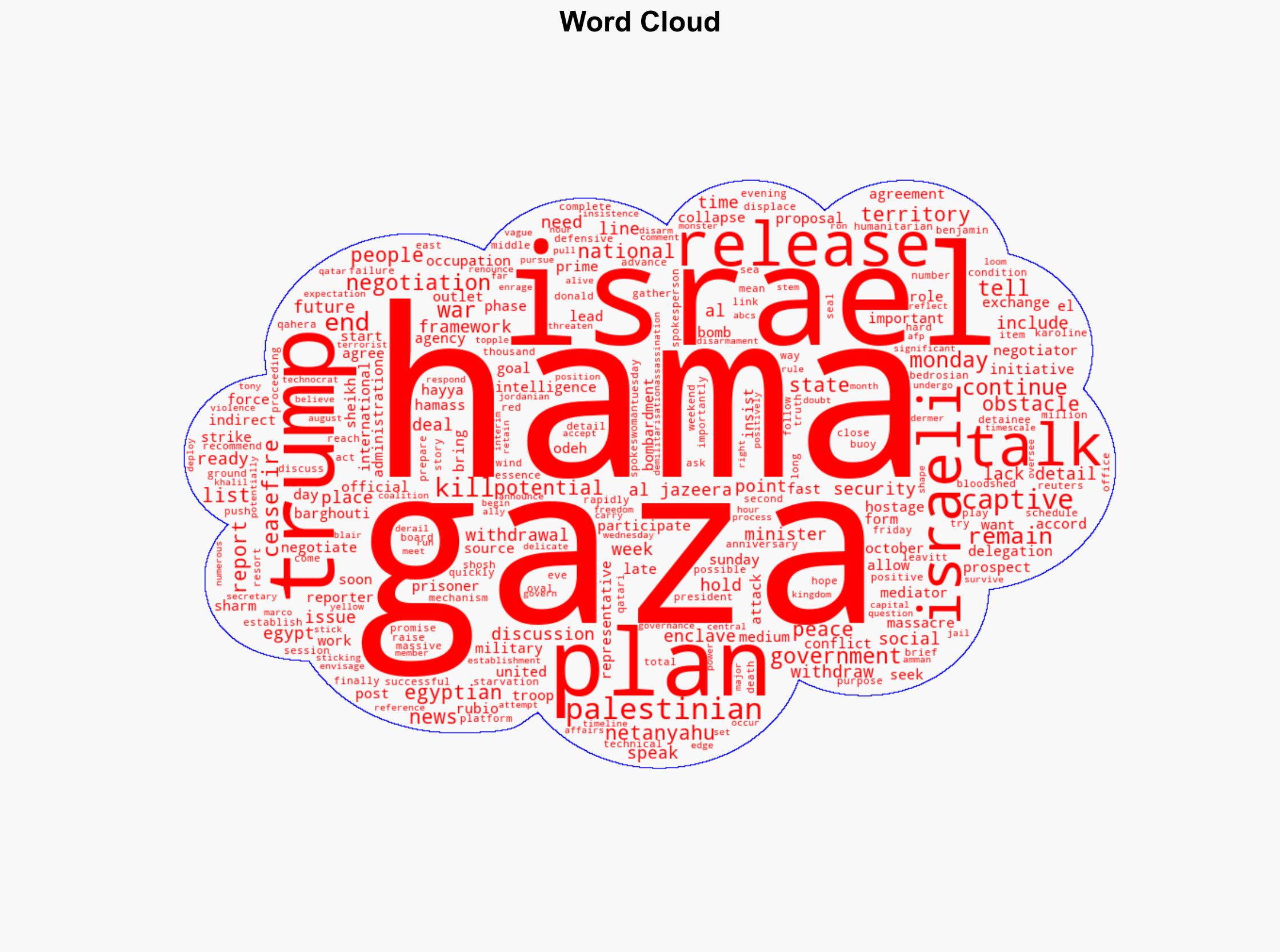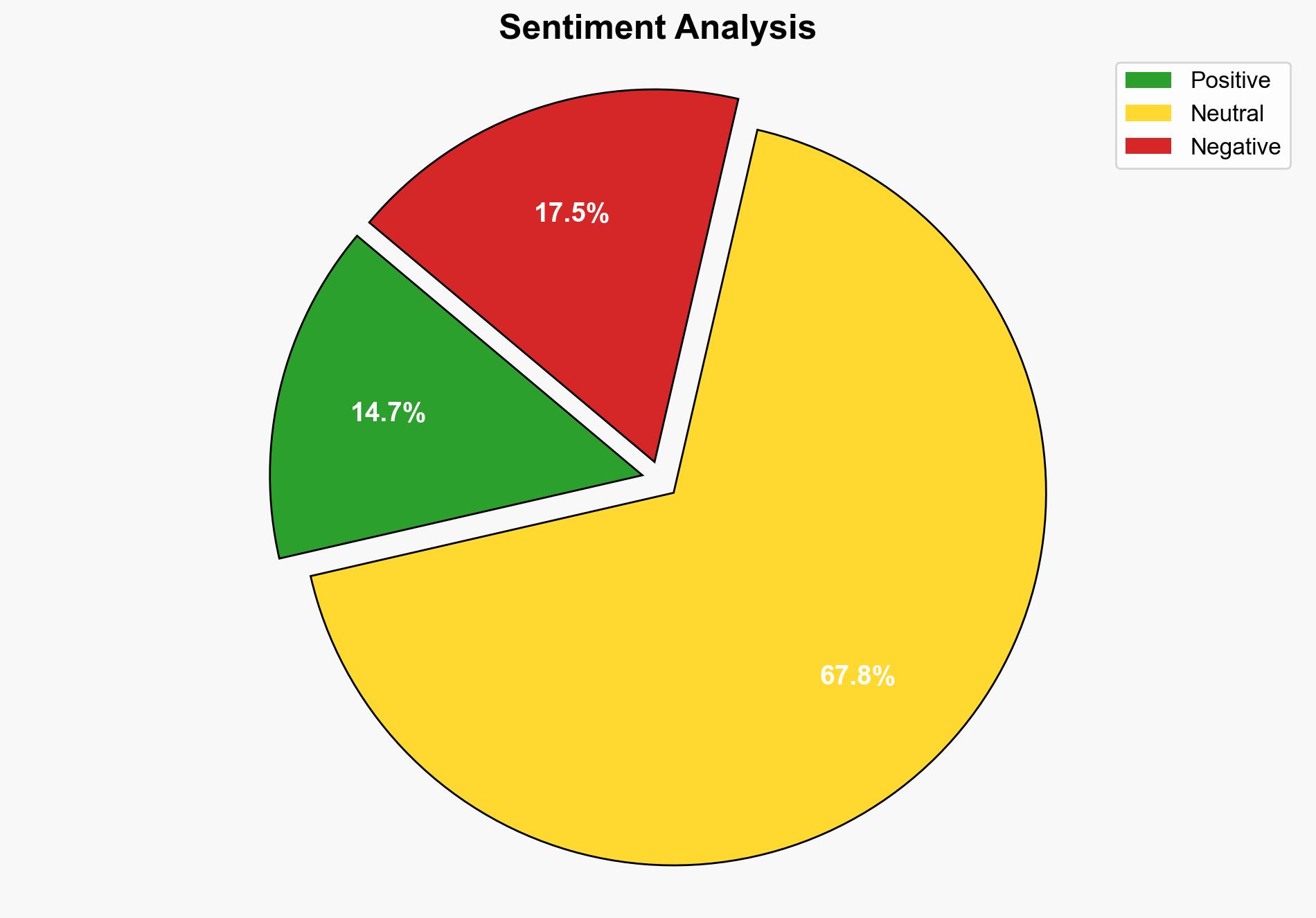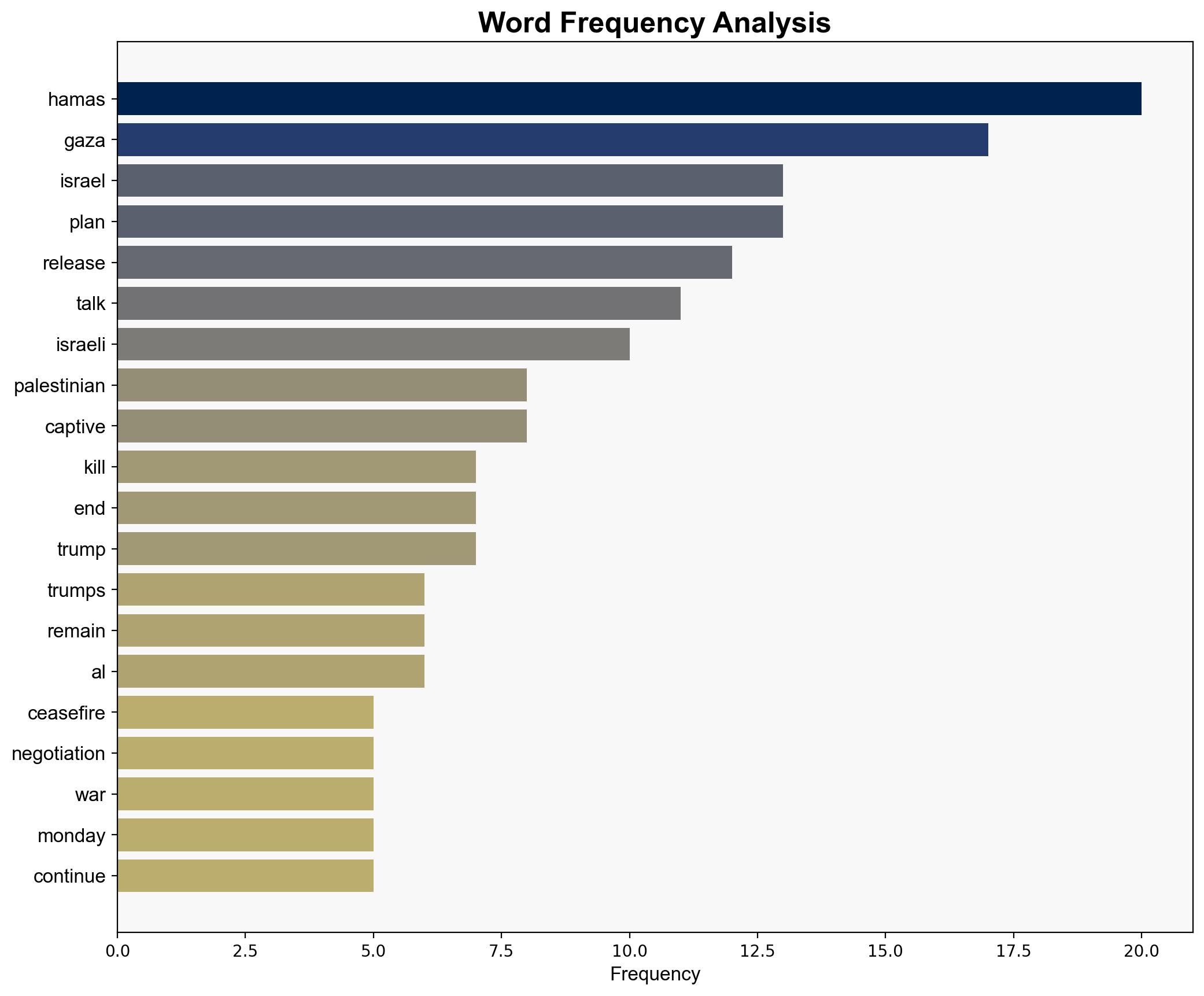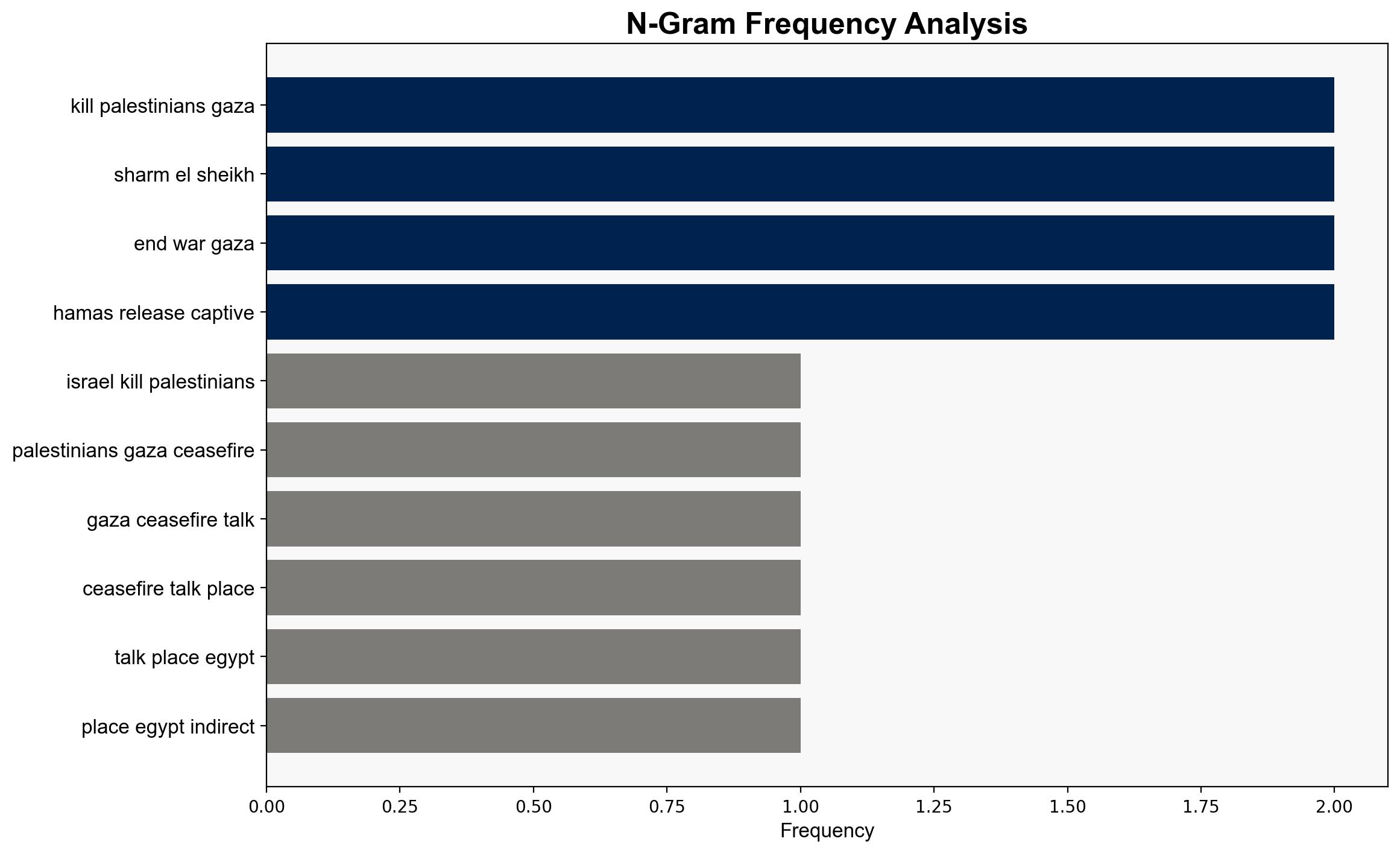Potential hurdles litter road as Israel and Hamas head to Gaza peace talks – Al Jazeera English
Published on: 2025-10-06
Intelligence Report: Potential hurdles litter road as Israel and Hamas head to Gaza peace talks – Al Jazeera English
1. BLUF (Bottom Line Up Front)
The most supported hypothesis is that the peace talks between Israel and Hamas, facilitated by Egypt and influenced by external actors like the United States, will face significant challenges and are unlikely to result in a lasting agreement in the short term. This assessment is based on the lack of detailed plans, ongoing hostilities, and entrenched positions on key issues. Confidence level: Moderate. Recommended action: Encourage confidence-building measures and third-party mediation to address immediate humanitarian concerns and create a conducive environment for future negotiations.
2. Competing Hypotheses
1. **Hypothesis A**: The peace talks will lead to a temporary ceasefire and partial prisoner exchange, but will not resolve underlying issues, leading to a potential resumption of hostilities.
2. **Hypothesis B**: The peace talks will collapse without any agreement due to irreconcilable differences and ongoing violence, exacerbating the humanitarian crisis in Gaza.
Using ACH 2.0, Hypothesis A is better supported due to ongoing negotiations and some willingness from both sides to discuss prisoner exchanges, despite the lack of detailed plans and continued violence.
3. Key Assumptions and Red Flags
– **Assumptions**: Both parties are genuinely interested in peace; external mediators can influence outcomes positively.
– **Red Flags**: Continued Israeli strikes and Hamas attacks during negotiations; lack of detailed timelines and disarmament plans; potential bias in reporting.
– **Blind Spots**: Internal political pressures within Israel and Hamas that may not align with negotiation outcomes.
4. Implications and Strategic Risks
– **Escalation Scenarios**: Failure of talks could lead to intensified conflict, increasing regional instability and humanitarian crises.
– **Geopolitical Risks**: Strained relations between Israel and neighboring countries; potential for increased involvement by external powers.
– **Economic Impact**: Prolonged conflict could disrupt regional trade and economic stability.
– **Psychological Impact**: Continued violence may erode public trust in peace processes, hardening attitudes on both sides.
5. Recommendations and Outlook
- Encourage confidence-building measures such as humanitarian aid and temporary ceasefires to build trust.
- Facilitate third-party mediation to address key sticking points like prisoner exchanges and border security.
- Scenario Projections:
- Best Case: Successful temporary ceasefire and humanitarian relief, leading to more comprehensive talks.
- Worst Case: Talks collapse, leading to intensified conflict and regional destabilization.
- Most Likely: Partial agreements with ongoing skirmishes and humanitarian challenges.
6. Key Individuals and Entities
– Donald Trump: Former U.S. President, proposing a peace plan.
– Benjamin Netanyahu: Israeli Prime Minister, involved in negotiations.
– Shosh Bedrosian: Israeli government spokesperson.
– Karoline Leavitt: Spokeswoman for Trump’s administration.
– Nour Odeh: Al Jazeera reporter providing insights into negotiations.
7. Thematic Tags
national security threats, regional focus, peace negotiations, Middle East conflict




